Your Emotional Currency by Kate Levinson, PhD
$297.99 $87.00
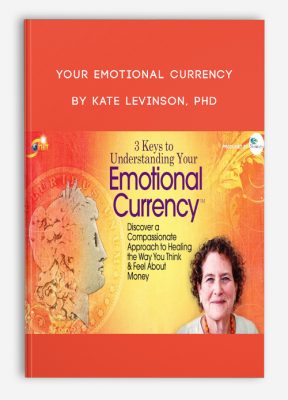
Your Emotional Currency by Kate Levinson, PhD
**More information:
Get Your Emotional Currency by Kate Levinson, PhD at Salaedu.com
Description
Uncover and shift your misperceptions about money to feel more freedom, ease, and joy while also opening to exciting unexpected possibilities for your life.
Discover self-empowering ways to relate to money — and approach your life — that better support your authenticity and even your sense of belonging.
When you think about money do you have a negative feeling somewhere deep down?
The truth is that most of us hold pain, frustration or shame around money — and this single fact is often one of the greatest barriers to our happiness and fulfillment.
That’s because money symbolizes what we can or can’t do. If we don’t have enough, it frustrates our creativity. It can limit our dreams. It can sabotage our health.
And even when there is “enough,” it can tear apart relationships and families who always want more.
The good news is that it doesn’t have to be this way. We can create a freer, more spacious, and even more enlightened relationship with money that sees it objectively, that doesn’t waste it OR attach to it. That sees money as an expression for our values, our hopes and our deepest commitments.
In a nutshell, we can relate to money in a holistic way that frees us rather than limits us.
And it all begins with healing our RELATIONSHIP with money by getting honest and real about the very real emotions we have about it.
As we do this, we gain what money expert Kate Levinson calls emotional currency, which helps us navigate our relationship with ACTUAL currency in a healthy way.
Money holds a value much greater than its monetary worth, and most of us can sense this — even if only unconsciously…
This “hidden” value shows up in many ways. For example, we’ve all argued with someone about money, perhaps with a romantic or business partner, and can feel the well of emotion behind our words — and theirs. In these situations, sometimes it can even feel like we’re holding on to our viewpoint for dear life.
urking beneath the surface there are thoughts and feelings you’ve attached to money.
Rather than avoid these emotions (which most of us do), when you explore the feelings they canan give you new insights into yourself and your life.
That’s because money is a like a Rorschach that tells you a lot about your relationship with yourself, your desires, your needs, your fears and more. When you explore your relationship with money, you discover more about YOU!
Yet, not many of us take the step to explore why we can get so triggered around money and where our thoughts and feelings about money — which can include fear, shame, and self-doubt — originated.
And that’s not surprising…
Western society has programmed us to live “the Dream” with all its material must-haves AND at the same time trained us not to talk about money. It’s just something you don’t do. What we are supposed to do is simply chase after more and more.
The problem with this is that our relationship with money runs deep and can greatly affect how we live our lives — our negative, undigested emotions around money blocking our opportunity for a healthy relationship with it.
In fact, when we have negative feelings about money, we tend to push it away subconsciously, which then reinforces our feelings of lack.
Like anything that’s blocking us from evolving, we need to explore and talk about these feelings. Discovering what our beliefs around money are and opening up about them can help us to better understand not only the financial situations we perpetuate, but ourselves.
How You Relate to Money Can Reveal How You Relate to Life
When you can look at your relationship with money (without judgement) and share your stories about money, you can gain important insights into yourself and how you live your life — including how much of your perception of self-worth is linked to your net worth.
You can also start to unlock any self-sabotaging beliefs you have around money and open to more self-empowering ways of dealing with your finances — and approaching your life, ways that better support your authenticity and even your sense of belonging.
You may even be surprised by a new feeling of freedom — to explore new unexpected possibilities for your life, as money concerns (many of them unconscious) are uncovered, understood, and shifted.
You may, for example, discover that a shopping spree — that you really can’t afford — is substituting your need to feel more in control in your life, and that by reigniting your passion for photography, you’ll fulfill that need.
Or, that uncovering your unconscious feelings around money can help you understand why you squirrel away most of what you earn and don’t allow yourself to enjoy your money — or your life.
Society, our culture, upbringing, and even partners and friends can overshadow our relationship with money. And until we can get to the root of our misperceptions, we can’t heal our discomforts around money issues, which can create a consistent undercurrent of unease in all areas of our lives.
Break the Taboo Against Talking About Money to Heal & Thrive
In Understanding Your Emotional Currency, author and therapist Kate Levinson, PhD, will help you break the taboo against talking about money, look at your “inner” relationship with money, comfortably tell your stories about money, and discover where your thoughts and feelings around money have a hold on you — and on how you live your life.
You’ll explore how shifting masculine-oriented views of money, which often undervalue women’s roles and worth — and have left an imprint on women’s perceptions of themselves in this arena — can help you to value the “softer” emotional intelligence women have around money.
This is true for both women AND men — we’ve inherited a view of money that tells us we should be cold-hearted, rather than warm-hearted in our relationship with money, which hurts us all.
You’ll also discover how to unlatch from society’s view that self-worth resides in net worth.
And, you’ll take a look at the connection between money and spirituality — the big picture and where your own personal views around these two important parts of your life originated. You’ll discover how money grounds us in reality and balances the more lofty side of the spiritual path with the day-to-day challenges of being human.
You’ll also see how you can use money to express your sense of spirituality, and how spiritual rituals of monetary offerings can expand your connection to others.
Kate has spent 20 years studying the interface of money and psychology, and is the author of the popular book: Emotional Currency: A Woman’s Guide to Building a Healthy Relationship with Money.
She’s helped thousands, including individuals, couples, and groups, uncover and unravel life and financial issues to bring more freedom, creativity, and joy into their lives.
In this uniquely empowering 7-step program, you’ll discover:
- Your relationship with money involves an intimate relationship with yourself — often overshadowed by societal, cultural, and familial imprints
- Why money is NOT something external to be mastered and controlled
- How to slow down and be curious around your thoughts and feelings about money — without judgment
- Emotional responses to money that influence your behavior whether or not you acknowledge them — you’re NOT doing it wrong because you have feelings
- Learn how your family is your first money teacher, and how exploring your money stories from childhood can help reveal your early perceptions about money
- How to get unstuck from limiting money beliefs and open to new creativity and endeavors
- That through telling your money story, you heal and have more access to resources from the past that can support you now
- It’s important not to let self-doubt stop you from taking on new challenges or possibilities for your life — even if you don’t feel 100% certain or secure
- You can shift your sense of self-worth by attending to your own needs — as well as the needs of others — rather than ignoring or putting your needs last
- How to create new mantras around money to help you to deal with it in healthier ways
- A sense of empowerment that comes from making your money your own by using it to invest in yourself and to benefit others and the world you would like to see
Understanding Emotional Currency provides an opportunity to be guided by an expert in compassionately exploring your relationship with money to heal and strengthen this relationship, which is a necessary, life-long part of life. And in healing your relationship with money, you’ll open to the right “flow” of it in your life, as well as better knowing yourself and healing other areas of your life.
Breaking the taboo against talking about money doesn’t have to be uncomfortable. It can be energizing and liberating, allowing you to take an accounting of money’s qualities (including the qualities it brings out or stifles in you) rather than merely focusing on its quantities.
These 7 weeks are a journey into making internal shifts around money that can support the external realities you desire — which often includes a more natural and magnetic relationship with money as well as added fun, awareness, and ease around money and the other parts of your life.
You’ll shift from feeling frozen or blocked in this key relationship to feeling more liberated, spacious, and prosperous, which in itself opens you to new possibilities for earning and investing.
Using money to invest in yourself and to benefit others and the world, as we’d like to see it, is how we make money our own. And identifying which cultural and familial beliefs around money fit and which we need to discard — to create new patterns and beliefs — is an important part of our self-evolution.
Our relationship with money is a part of our path and healing that can make us squirm with unease or that we might even ignore, but which can bring us a wealth of insights, including a liberating sense of freedom and self-worth — even if our net worth hasn’t changed at all.
What You’ll Discover in These 7 Modules
In this 7-part transformational intensive, Kate will guide you through the fundamental skills and competencies you’ll need to successfully uncover and shift your misperceptions about money to feel more freedom, ease, and joy.
This course will feature teachings, training sessions, and experiential practices with Kate. Each session will build harmoniously upon the previous ones so you’ll develop a complete holistic understanding of the practices, tools, and principles you’ll need to sustain your self-empowered approach to money and life.
Module 1: Turning Inward
Explore Your Inner Relationship With Money Without Judgment
You’re not alone in your struggles with money, you just don’t know how others are struggling. And most of us imagine there’s a get rich fix that will take all our troubles away. But money is not a panacea. Mitigating our misbeliefs and unbeneficial behaviors around money is an inside job. And this inner relationship is our most impactful force in healing our money challenges — the one that will have the most influence over how with think and feel about money, no matter our net worth.
In this session, you’ll discover:
- Your relationship with money involves an intimate relationship with yourself — often overshadowed by societal, cultural, and familial imprints
- Why money is NOT something external to be mastered and controlled
- How to slow down and be curious around your thoughts and feelings about money — without judgment
- That knowing yourself better can help you to understand your beliefs and actions around money (and around how you live your life) AND help you better see which are in alignment with who you truly are
- Cultivating a practice of moving inward is as important to shifting your relationship with money as it is to shifting your consciousness in general
Module 2: Emotional Currency
Discover the Value of Your Emotional Responses to Money
Money is legal tender and emotional currency — meaning our emotions connected with money also hold a value for us. The benefits of our emotional responses to money, however, are often underappreciated, even conceived as toxic when it comes to money management. The financial industry teaches us that if we have feelings about money, we should push them aside when making money decisions. Yet, we use money to express and suppress our feelings all the time — think shopping therapy.
We’ll further explore our feelings around money — our emotional currency — including fear, greed, and guilt, as well as pleasure, opportunity, and sufficiency. We’ll also look at the forces outside ourselves that influence our relationship with money and financial circumstances, including: race, age, gender, culture, religion, and financial background.
In this session, you’ll discover:
- Emotional responses to money that influence your behavior whether or not you acknowledge them — you’re NOT doing it wrong because you have feelings
- Your feelings about money are complex, unavoidable, and sometime conflicted
- Your financial state is not all your doing — there are many societal, historical, and cultural forces that influence how much you have and how you deal with what you have
- How to get unstuck from limiting money beliefs and open to new creativity and endeavors
- How to pay attention to your thoughts, associations, and feelings when you deal with money — to see how specific situations and exchanges can provide starting points for exploring your relationship to money
Module 3: Money Stories
Getting to the Root of Your Money Experiences
We all have money stories — big dramatic ones and the smallest of incidents — that lodge in our psyches. Remembering these stories gives us an opportunity to see what we think and feel about money without the added interpretation and commentary from our thinking mind.
By telling our money stories, through writing and/or conversation, we’re led in unexpected directions. Things we’d forgotten or didn’t appreciate before are revealed, and new understandings emerge. Through the very act of telling our stories, healing takes place.
In this module, you’ll explore what you learned about money from your family as you were growing up, to help reveal strengths, resiliencies, confusions, or traumas around money you may still be affected by. Our narratives about money show us what money means and holds for us.
In this session, you’ll:
- Tell your money stories to come to new understandings and insights about what contributes to how your currently deal with money
- Discover that through telling your money story, you heal and have more access to resources from the past that can support you now
- See how stories help you bypass your thinking mind — which analyzes and interprets — to better see your intimate connections with money
- Learn how your family is your first money teacher, and how exploring your money stories from childhood can help reveal your early perceptions about money
- Discover that by paying attention to your present feelings, you can become more aware of the money views you carry from your past
Module 4: Self-worth & Valuing the Feminine
Finding Your Worth Beyond Money
Self-worth is an issue for many women, and our perceptions around money are usually intertwined with our self-worth. It’s no wonder… we’ve historically been, and continue to be, treated as less worthy than men in most all cultures, with money linked to one of the most consistent ways we’ve been devalued — being paid less than men for doing the same job.
Men are also still considered the financial experts and dominate most aspects of the industry. And with this comes an underestimating of our competencies around money, which has been consciously or unconsciously imprinted in our psyches as being true.
Shifting this misperception is essential to healing ourselves and our relationship with money — and one of the key ways to start is through internally valuing the Feminine — creating a place of honor for it to reside alongside the masculine ways.
When we embrace the Feminine, we can untangle our self-worth from our net worth and place it in other valued areas of our life, which weakens the hold money can have on our ego and allows our life decisions to be more holistic and nourishing.
Unexpected changes can also arise from this shift to valuing the “softer” sides of our relationship with money, including an increased sense of care, interconnection, and holding.
In this session, you’ll discover:
- How to recognize that as women, we are prone to having issues around self-doubt and self-worth, and can often underestimate our competency
- Increasing your self-worth is an inside job, and making or accumulating more money does not automatically bring positive self-regard or a sense of wholeness
- Healing a wounded self-esteem comes from valuing the Feminine: being, connection, emotion, and experience
- It’s important not to let self-doubt stop you from taking on new challenges or possibilities for your life — even if you don’t feel 100% certain or secure
- You can shift your sense of self-worth by attending to your own needs — as well as the needs of others — rather than ignoring or putting your needs last
Module 5: Money & Spirit
Aligning Your Relationships With Money & Spirituality
How we acquire and use money, what values we express with it, and what it means to us constitute our spiritual relationship with it. However, our relationship with money is often not aligned with our spiritual beliefs. We tend to keep money and spirit separate, sometimes perceiving money as “dirty” and not to be intertwined with our spiritual life. Yet, from a non-dualistic point of view, money and spirit are not separate, they are intimately intertwined.
In this module, we’ll explore the spiritual properties money can hold, our obligation to take care of our own wellbeing as well as that of others, what constitutes an ethical relationship with money, and where gratitude, generosity, tithing, and compassion fit in our money lives.
In this session, you’ll discover:
- Money and spirit are not separate — money involves how we relate to ourselves, others, and all of life
- How Intertwining your spiritual practices with money brings guidance to your money dealings as well as opportunities for spiritual growth
- That working through money challenges can offer rich ground for spiritual growth
- That having compassion for others helps you to develop compassion for yourself
- How you can use your financial resources — no matter what they are — for the greater good
Module 6: Attending to Money
Explore Your Blocks to Earning, Investing, Having & Using Money
We imagine that others don’t have blocks to dealing with money, but this is only because most of us hide our struggles. Almost all of us have difficulties with money. Even the wealthy have habitual thoughts and behaviors around money that contribute to their suffering.
In a culture of scarcity and income inequality, fear is near the top of the list of negative money blocks for many. Many of our decisions are based on it, as well as on guilt, regret, self-doubt, anger, resentment, disappointment, or shame.
The way to move through our blocks around money is to identify them by observing our habitual behaviors and listening to what they’re saying to us. They are generally trying to protect us and take care of us, but in ways that don’t serve us. When we get to the root of the block we can see our deeper, underlying needs and figure out a way to truly take care of them.
In this session, you’ll discover:
- How we hide our money struggles from each other
- That we can look like we “have it all” and yet still have feelings of guilt, anger, and resentment around money
- Negative, undigested feelings around money can paralyze you from handling your money issues
- Psychological dynamics drive much of your money behavior
- The way to move through your blocks around money is to identify them, listen to what they’re saying, and figure out how to best take care of them
Module 7: Healing Your Money Wounds
How to Make Your Money Your Own
Healing your relationship with money can support you in living your best life possible. And making this shift is not about denying your painful experiences around money, but in feeling your pain and holding it with new understanding, compassion, and love. Some pain remains, but in a digested form that can become a generative life force within you, allowing for greater wisdom and guidance to emerge. (Undigested past pain, including that of your ancestors, race, and culture can keep you stuck in the past and numb to the present.)
The healing process is about discovering new — often unexpected — paths to your aliveness. It involves finding the right life affirming mantras to replace limiting, undermining ones you may have been telling yourself. It’s in discerning which of your feelings and behaviors truly fit and which actually belong to someone else. And, it has to do with making your money your own by putting your mark on it as it passes through your hands.
During this last session, you’ll explore the following questions: What kind of life am I investing my financial resources in? Are my feelings and values aligned with the ways I make and use money? What am I investing in — at a deeper level, including financial investments, if I have them? Who and what am I supporting? Am I using money to contribute to the kind of world I want to see?
You’ll discover:
- That healing your relationship with money supports you in living your best life possible
- Undigested pain around money keeps you stuck in the past and numbs you to the present — and how to approach this pain with understanding and compassion to use it in a generative, self-empowering way
- How to discern which of your feelings and behaviors around money truly fit and which actually belong to someone else
- How to create new mantras around money to help you to deal with it in healthier ways
- A sense of empowerment that comes from making your money your own by using it to invest in yourself and to benefit others and the world you would like to see
Self Help – Self Help online course
More information about Self Help:
Self-help or self-improvement is a self-guided improvement—economically, intellectually, or emotionally—often with a substantial psychological basis.
Many different self-help group programs exist, each with its own focus, techniques, associated beliefs, proponents and in some cases, leaders.
Concepts and terms originating in self-help culture and Twelve-Step culture, such as recovery, dysfunctional families, and codependency have become firmly integrated in mainstream language.
Self-help often utilizes publicly available information or support groups, on the Internet as well as in person, where people in similar situations join together.
From early examples in self-driven legal practice and home-spun advice, the connotations of the word have spread and often apply particularly to education, business,
psychology and psychotherapy, commonly distributed through the popular genre of self-help books.
According to the APA Dictionary of Psychology, potential benefits of self-help groups that professionals may not be able to provide include friendship,
emotional support, experiential knowledge, identity, meaningful roles, and a sense of belonging.
1 review for Your Emotional Currency by Kate Levinson, PhD
Add a review Cancel reply
Related products
HEALTH - FITNESS - LIFESTYLE - MEDICAL
HEALTH - FITNESS - LIFESTYLE - MEDICAL
HEALTH - FITNESS - LIFESTYLE - MEDICAL
HEALTH - FITNESS - LIFESTYLE - MEDICAL
HEALTH - FITNESS - LIFESTYLE - MEDICAL
HEALTH - FITNESS - LIFESTYLE - MEDICAL
HEALTH - FITNESS - LIFESTYLE - MEDICAL


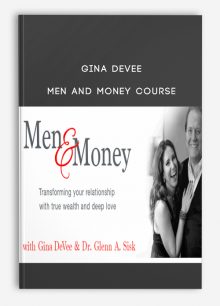
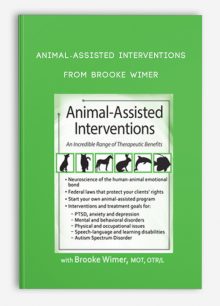
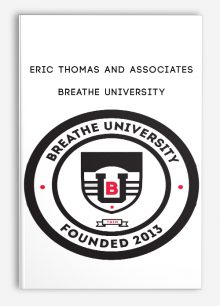
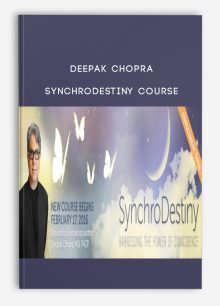
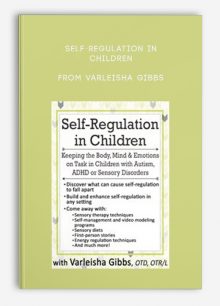

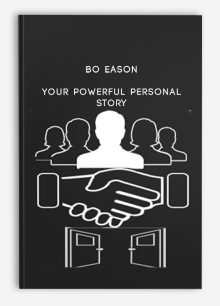
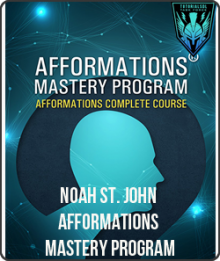
Trevis Trevis –
Welcome to Sala Shop, we are here to provide everything to learn and improve this life…encourage you to check clearly the course